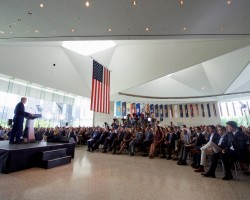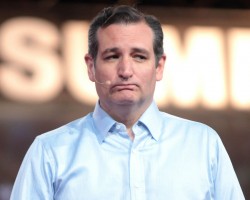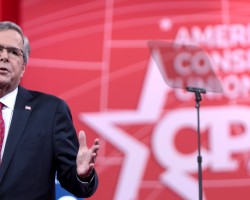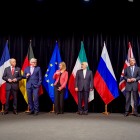
Scott Walker’s Shallow Posturing on Foreign Policy
America Unintimidated: Scott Walker’s shallow posturing on foreign policy.
By John Bradshaw, Executive Director of NSN
September 4, 2015
Although he seems to be sinking rapidly in the polls, Scott Walker remains a viable candidate and his continuing effort to stake out a credible foreign policy is relevant because it builds on themes that are representative of most of the rest of the large field of candidates. In keeping with the general Republican line, Walker’s speech at the Citadel last Friday, read in the lugubrious cadences of a Midwestern preacher, was long on hawkish posturing and short on policy substance.
The hollowness of his approach was evident even in the title of his speech: “America Unintimidated”. Harkening back to his campaign book, “Unintimidated,” which chronicles his battles with Wisconsin’s labor unions, Walker asserted that “he has been tested like no other candidate in this race.” When Walker translates his experience as governor into foreign policy the result will be that, “Our forces will be strong, our weapons will be modern and, America will be unintimidated.” Hard to argue with that broad prescription, but does it reflect any actual problems with America’s current national security posture? The U.S. military has more firepower than all of potential peer competitors combined and no nation spends nearly what we spend on developing advanced weapons, so it is unclear what specific changes Walker would make on the overall size and shape of the military. The real thrust of Walker’s declaration is that the U.S. is suffering national security setbacks because we are routinely being “intimidated.” In a world of complex security challenges and continually evolving threats is the most serious problem for U.S. foreign policy really that the Obama Administration and the military establishment are somehow cowering in fear, afraid to tackle global challenges? The Administration has taken extensive action against ISIS, launching over 5000 air strikes and placing 4,500 U.S. troops on the ground. While this effectiveness of this strategy can be debated, it hardly looks like the U.S. is “sitting on the sidelines” as Walker asserts, and is not the approach of a nation that is “intimidated.”
After shaping his speech around the theme of “intimidation” Walker gives no examples of cases in which the U.S. has not taken action because it was “intimidated.” Instead he drops that line as a serious critique and lays out his own confused and reckless approach to dealing with ISIS, Syria, and Iran. Walker contends that Iran and ISIS are “feeding off each other,” when in fact they are in direct conflict within Iraq and have contending visions for the future of the region. In Walker’s unsophisticated view, Iran and ISIS are two parts of the phenomenon of “radical Islamic terrorism” and should be conflated and approached the same way. The U.S. should be working to oust Assad from power in Damascus and “rolling back” the regime in Tehran, while enforcing a no-fly zone in Syria. Walker does not engage with the likely consequences of this major regional escalation, asserting that American leadership can resolve the chaos in the Middle East by getting its rhetoric right and understanding that radical Islamic terrorism is evil. Walker fails to make his case that America is currently intimidated from taking action in the world, but he does make the case for “Walker: Uninformed”.






